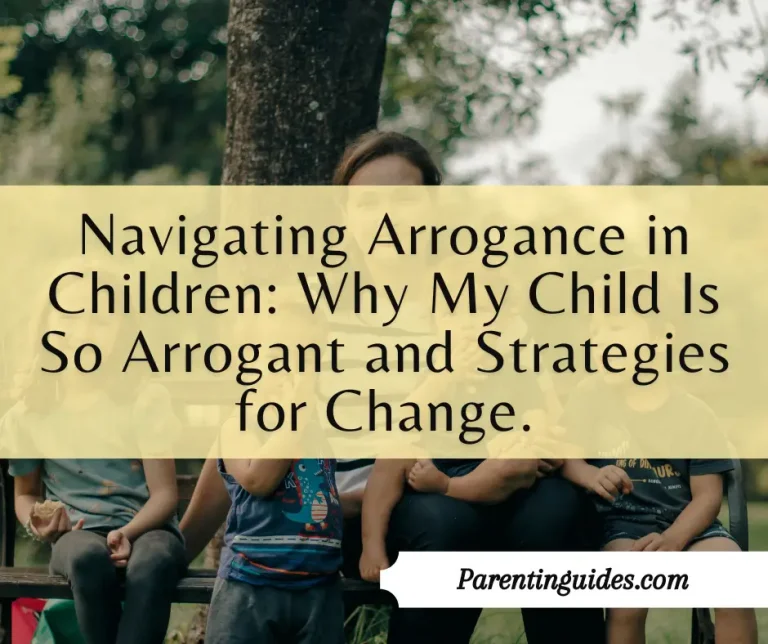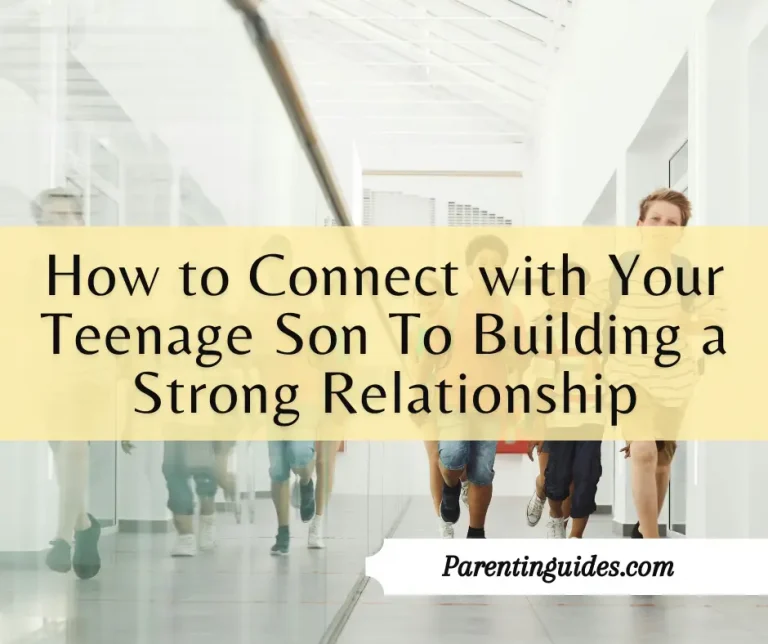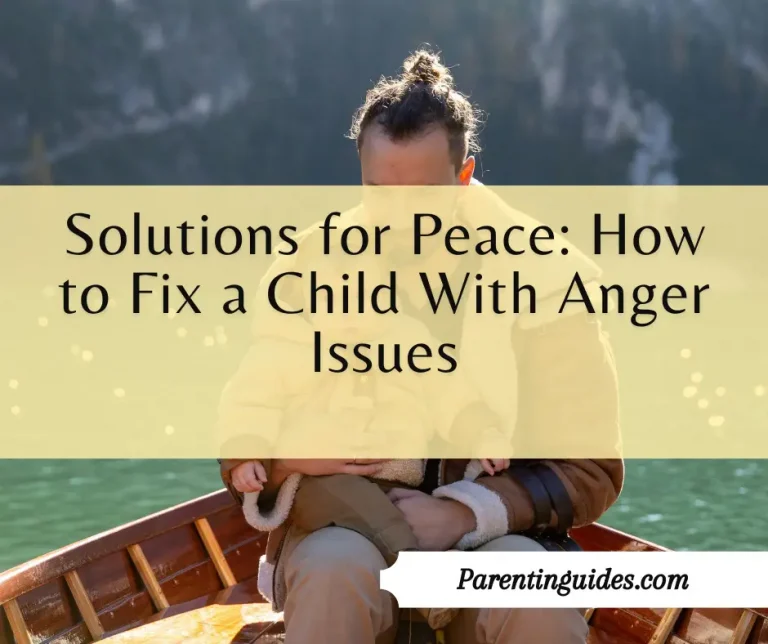As parents, one of the most perplexing questions we often find ourselves asking is, “Why is my young adult son so angry?” This question can echo through the halls of our homes, becoming more persistent as we witness our sons navigate the turbulent waters of young adulthood. This period in their lives is fraught with rapid changes, high expectations, and intense pressures, all of which can fuel feelings of frustration and anger.
The transition from adolescence to adulthood is no small feat. Young adults face a barrage of decisions about their future. From academic pressures and career decisions to evolving social circles and personal relationships, each aspect can contribute significantly to their emotional state. As they strive to find their place in the world, it’s not uncommon for young men to experience an identity crisis, which can manifest as anger. Therefore, if you are worrying about why is my young adult son so angry, do not sorry.
In our family, understanding our son’s anger became a pivotal part of our parenting journey. My husband and I had to learn that beneath his fiery outbursts lay a young man grappling with immense stress and the fear of uncertain futures. It was a stark reminder of the complexities of growing up and the emotional baggage that comes with stepping into adulthood.
This article is about “Why is my young adult son so angry?” aims to delve into the common reasons behind the anger felt by young adult sons. It also offers strategies to help parents not only understand but effectively support their children. Drawing from our own experiences, where evenings often ended in heated discussions or doors slamming, we’ve learned valuable lessons on approaching and resolving these intense emotions. Through trial and error, heartfelt conversations, and a few tears, we’ve gathered insights that we hope will resonate with other parents facing similar struggles.
By sharing our journey, we wish to provide a beacon of hope and a practical guide for parents navigating this challenging but crucial phase of their young adult sons’ lives. Join us as we unravel the mystery behind the question, “Why is my young adult son so angry?” and transform our approach from one of despair to one of empathy and support.

Understanding the Root Causes of Anger
Emotional Turmoil and Identity Crisis
If you are wondering about why is my young adult son so angry, understand this clearly. Young adults often struggle with their identity, which can lead to significant frustration and anger. Our son has gone through periods of doubt about who he is and what he wants from life. This confusion can be overwhelming.
There was a time when our son seemed lost, unsure about his college major and anxious about his future. It was during his second year of university that he began questioning if he had chosen the right path. His uncertainty was evident in his mood swings and occasional outbursts at home.
It’s vital for parents to be there for their children without overwhelming them. If you are worrying why is my young adult son so angry, engage in open conversations. Offer guidance when asked, and support their journey to self-discovery. Sometimes, just knowing they are not alone in this can significantly lessen their anger.
Academic and Career Pressures
The pressure to succeed academically and make the right career choices can be a major source of stress and anger for young adults. They often feel the weight of expecting to figure out their entire lives at once, which is daunting.
Our son once admitted that he felt immense pressure to match his peers’ successes, which was eating away at him. After failing a crucial exam, his frustration became palpable. He was angry and disillusioned with his abilities, which led to several heated discussions at home.
Help your child understand that one exam or grade does not define their worth or dictate their future. Encourage them to take things one step at a time. accordingly, you can solve the problem “Why is my young adult son so angry?”.
Social and Peer Relationships
Social dynamics and relationships with peers play a critical role in a young adult’s emotional health. If you are worrying about the problem “Why is my young adult son so angry?”, misunderstandings, conflicts, or feeling left out can fuel feelings of anger and isolation of your son.
There was an incident where our son felt betrayed by a close friend, which left him incredibly angry and reluctant to trust others. His social circle’s dynamics had shifted, and he was struggling to find his footing, which often led to anger outbursts at home.
Encourage your son to talk about his social interactions. Discuss the importance of surrounding himself with supportive friends who respect and uplift him. Teach him that it’s okay to walk away from relationships that cause him distress.
By addressing these areas thoughtfully, parents can help their young adult sons understand and manage their anger more effectively. The key is to communicate openly, provide steady support, and empower them to overcome the challenges of this transformative life stage.

Recognizing the Signs of Anger
Recognizing the signs when a young adult son is grappling with anger is crucial. It helps us, as parents, to intervene appropriately and supportively. Here’s how we’ve managed to identify and address the signs of anger in our son.
Behavioral Changes
One of the first signs we noticed when our son began showing anger was changes in his behavior. His usual calm demeanor gave way to sudden outbursts over small annoyances—a clear signal that something was amiss. “Why is my young adult son so angry?” we would wonder, witnessing these shifts. It became apparent that understanding these changes was crucial.
From our observations, we learned that these behavioral changes often precede more intense expressions of anger. By recognizing these early signs, we could approach him in a supportive manner, which often helped de-escalate potential conflicts. It’s important for parents to note any unusual shifts in behavior and address them promptly, providing a safe space for their children to express what’s really bothering them.
Emotional Outbursts
Emotional outbursts are more overt and distressing signs of deep-seated anger. Our son’s outbursts were typically loud and could be triggered by what seemed like trivial matters, but they were actually manifestations of deeper frustrations. Each time he had one of these outbursts, it forced us to step back and seriously consider, “Why is my young adult son so angry?”
We found that responding to these outbursts with calmness and empathy was more effective than meeting anger with anger. After he calmed down, we would discuss what triggered his anger, helping him to identify and cope with his triggers more constructively. For parents, it’s crucial to remain composed during these episodes and address the underlying issues in a non-confrontational way.
Withdrawal and Isolation
Another significant sign of anger in our son was his tendency to withdraw and isolate himself. Seeing him retreat into his room for days was a clear indication of his struggle with anger. Each instance of withdrawal made us reflect deeply on the question, “Why is my young adult son so angry?” It became clear that this behavior was a coping mechanism for his overwhelming emotions.
When we were considering why is my young adult son so angry, we learned that it was important to respect his need for space while also keeping communication channels open. We made it a point to gently let him know that we were there for him, ready to talk whenever he felt able to. Encouraging open communication and making sure he knew that withdrawal wasn’t his only option helped him feel supported and less isolated.

Communication Strategies
Active Listening
Active listening is crucial in defusing anger. It is especially when considering why is my young adult son so angry. It’s about giving your full attention and showing empathy, which can help calm heated situations. I’ve found that when my son is angry, simply listening to him without interrupting or judging can make a significant difference.
There was a time when my son came home frustrated after a tough day at college. He started venting about his challenges, and instead of offering immediate solutions, I decided to listen. I nodded, made eye contact, and let him express his feelings. This approach helped him feel heard and understood, which in turn, diffused his anger.
Practicing active listening involves a few key techniques. First, maintain eye contact to show that you are engaged. Second, use verbal affirmations like “I see” or “I understand” to encourage them to continue talking. Third, avoid interrupting or giving unsolicited advice. Let them finish speaking before you respond. This method is a must try if you are fed up thinking “Why is my young adult son so angry?”
Non-Judgmental Responses
Responding without judgment is vital when communicating with an angry young adult. It’s easy to react defensively or dismiss their feelings, but this often escalates the situation. I’ve learned that when my son is angry, responding with empathy rather than judgment can lead to better communication.
For instance, during a heated discussion about his future career choices, my husband and I made a conscious effort to listen and respond without criticizing his decisions. We acknowledged his feelings and refrained from making negative comments. This approach made him more open to discussing his concerns and frustrations, helping us understand why our young adult son was so angry.
When discussing about why is my young adult son so angry, maintaining a non-judgmental stance involves several strategies. Firstly, avoid using negative language or tones that can be perceived as critical. Instead, use neutral language that shows you respect their perspective. Secondly, validate their feelings by acknowledging their emotions, even if you don’t agree with their viewpoint. Lastly, remain calm and composed, even if the conversation becomes intense.
Setting Boundaries
Setting healthy boundaries is essential for maintaining a respectful and supportive relationship with an angry young adult. If you are worrying abut why is my young adult son so angry, you must try this. Boundaries help in creating a structured environment where both parents and children know their limits and responsibilities.
For example, we set specific guidelines about how we communicate during disagreements. We agreed that yelling and personal attacks were off-limits. This mutual understanding helped in reducing the intensity of our arguments and provided a framework for more productive discussions. By setting these boundaries, we were able to address why our young adult son was so angry in a more constructive manner.
Establishing and maintaining boundaries involves several key steps. Firstly, communicate your expectations clearly and consistently. Make sure your young adult son understands the reasons behind these boundaries and how they contribute to a healthy relationship. Secondly, enforce the boundaries fairly and consistently. If a boundary is crossed, address it calmly and remind them of the agreed-upon rules. Lastly, be open to negotiating boundaries as needed. These approaches have transformed our interactions from confrontational to supportive, helping us address the underlying issues behind the question, “Why is my young adult son so angry?”.

Practical Approaches to Managing Anger
Encouraging Physical Activity
Physical activity plays a crucial role in managing anger. It helps release pent-up energy and reduces stress. When my son was struggling with anger, we encouraged him to engage in regular physical activities. We noticed that physical exercise helped him cope better with his emotions.
When talking about why is my young adult son so angry, one particular experience stands out. My husband and I decided to take up jogging with our son every evening. Initially, he was reluctant, but gradually, he began to look forward to these sessions. The physical exertion seemed to alleviate some of his frustration and anger. It was a way for him to channel his emotions constructively.
To integrate physical activity into daily routines, start with something your child enjoys. It could be a sport, walking, or even dancing. Make it a part of your family’s routine. Encouraging your young adult son to stay active can significantly reduce your stress of thinking “Why is my young adult son so angry?”
Promoting Healthy Coping Mechanisms
If you are thinking “Why is my young adult son so angry?”, healthy coping mechanisms are essential. These strategies provide alternatives to lashing out and help manage emotions more effectively. In our family, we explored various coping mechanisms to help our son deal with his anger.
We found that journaling was particularly effective for him. Writing down his thoughts and feelings allowed him to process his emotions. It became a private space where he could vent without judgment. My husband also introduced him to mindfulness and breathing exercises. These techniques helped him stay calm during stressful situations.
Seeking Professional Help
Sometimes, professional help is necessary to manage anger effectively. Recognizing when to seek external support is crucial. We reached a point where we felt that our efforts were not enough, and it was time to consult a professional.
When I was wondering “Why is my young adult son so angry?”, we found a therapist who specialized in working with young adults. This decision made a significant difference. The therapist provided our son with tools and strategies tailored to his specific needs. He learned how to identify triggers and develop healthier ways to respond to them.
If you’re considering professional help for your young adult son, start by having an open conversation. Explain that seeking help is a sign of strength, not weakness. Look for a therapist who has experience with young adults and anger management. This support can provide your son with the skills he needs to handle his emotions and reduce his anger.
Accordingly, you can help your young adult son manage his anger more effectively. Understanding “Why is my young adult son so angry?” is the first step. These practical approaches can make a significant difference in his emotional well-being and your family’s overall harmony.

Building a Supportive Environment
Creating a Safe Space for Expression
When it comes to the problem “Why is my young adult son so angry?”, creating a safe space for expressing emotions is crucial. It allows your child to share feelings without fear of judgment. My husband and I made sure our son knew he could talk to us about anything. We set up regular family meetings where everyone could voice their concerns. This openness helped him feel secure and understood.
To foster a supportive environment, ensure your home is a judgment-free zone. Encourage your son to express his feelings, whether through talking, writing, or other forms. Listen without interrupting or criticizing. This practice helps address why your young adult son is so angry and provides a foundation for resolving issues.
When it comes to “Why is my young adult son so angry?”, we began focusing on creating this safe space, we noticed a change in our son. His anger seemed to diminish as he realized he could express his emotions freely. Understanding why your young adult son is so angry often starts with providing a space where he feels safe to communicate.
Encouraging Open Communication
When considering the problem “Why is my young adult son so angry?”, open communication channels are vital for understanding and managing anger. We always emphasized honesty in our family. When our son felt angry, we encouraged him to talk about it. This approach helped him feel heard and validated, reducing his anger over time.
To encourage openness and trust, be available and approachable. Let your son know he can come to you with any problem. Use active listening and show empathy. This strategy not only helps you understand why your young adult son is so angry but also builds a stronger, more trusting relationship.
Fostering Independence and Responsibility
Balancing support and independence is key to helping young adults manage anger. We gave our son responsibilities and trusted him to make his own decisions. This approach helped him feel more in control and less frustrated.
Encouraging independence involves giving your son the freedom to make choices while offering guidance. Assign responsibilities that match his abilities and gradually increase them as he proves capable. This method helps him learn accountability and reduces the anger often linked to feeling powerless. Understanding why your young adult son is so angry involves recognizing his need for autonomy and supporting his growth into a responsible adult. Therefore, if you are worrying about the problem “Why is my young adult son so angry?”, follow these strategies for better results.

Conclusion
Understanding why is my young adult son so angry has been a challenging yet enlightening journey. By creating a safe space for expression, encouraging open communication, and fostering independence, we have made significant progress. These strategies have helped us address the question, “Why is my young adult son so angry?” and have transformed our relationship.
As parents, it’s crucial to remain patient and empathetic. By consistently supporting our son, we have seen positive changes. If you find yourself asking, “Why is my young adult son so angry?”, remember that with understanding and effort, you can help your son manage his emotions and strengthen your family bonds.









